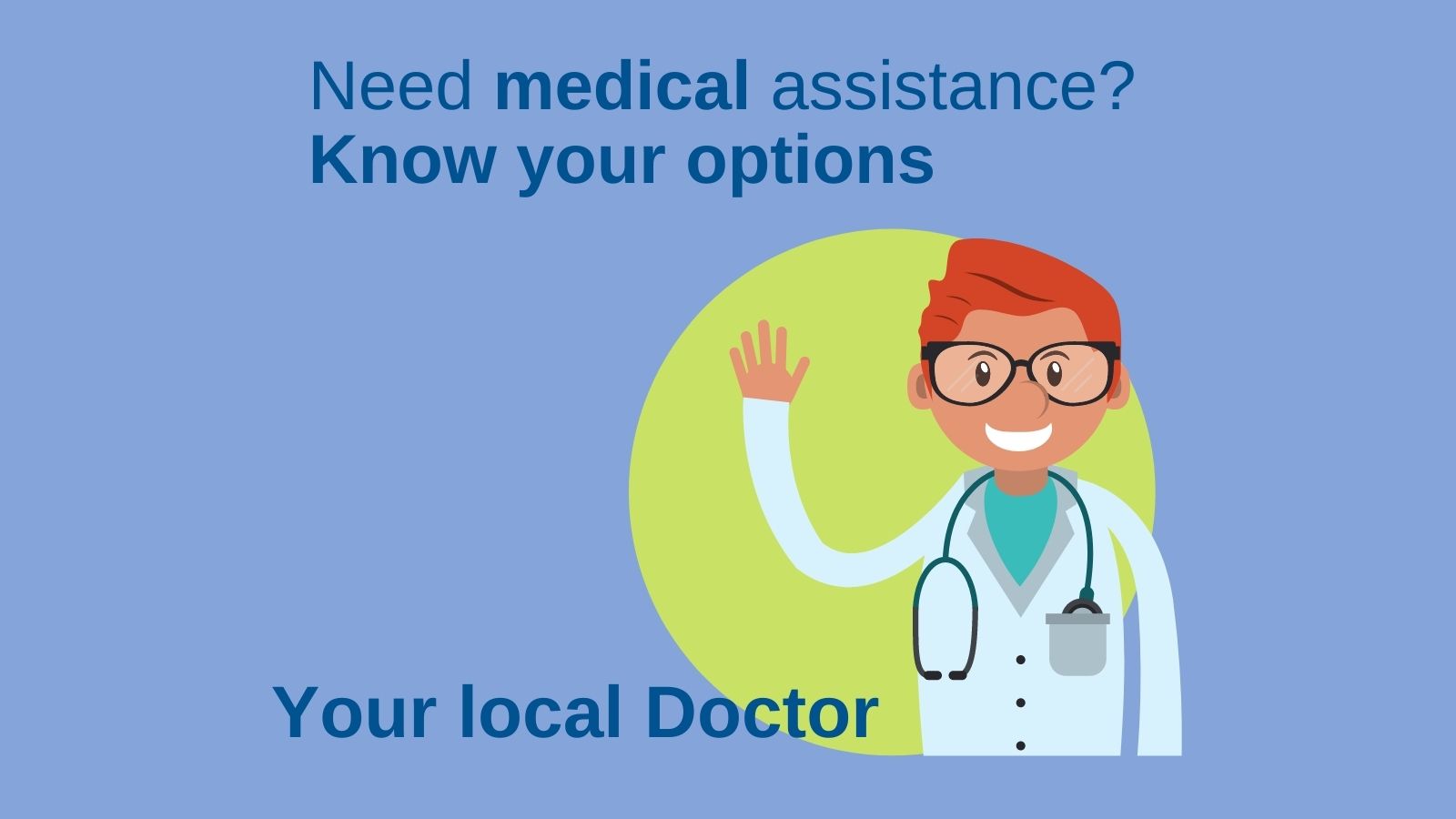How do I know when to go to Emergency?

Ballarat Health Services is reminding the community that there are available resources for non-emergency medical advice and treatment.
Last year when we were required to stay at home Ballarat Health Services saw a dramatic decrease in the number of people coming to the Emergency Department for help.
As COVID-19 restrictions have eased, the demand on the Emergency Department has increased again, and often with non-emergency (non-acute) injuries or illnesses.
Why is this? Well, our research shows there are a number of reasons why people choose to come to Emergency, when they don’t need to. Continue reading to learn more about when and how to get non-acute help.
If you need a COVID-19 test
COVID-19 testing is not available at the Emergency Department.
CLICK >> for up to date testing information
Not sure if it is an emergency?
A medical emergency is a serious injury or illness that means a person’s life or long-term health is at immediate risk. In short, if that person does not get urgent medical help they may die or may develop a more serious health issue.
The Emergency Department is open for patients seeking urgent medical care and treatment, with staff available to assess, treat, stabilise and begin to manage the conditions of those who present with a serious illness or injury.
This could include:
- Chest pain or tightness
- Sudden numbness or paralysis of the face, arm or leg
- Large burns
- Serious accidents or trauma
- Severe bleeding
- Difficulty breathing
- Extreme pain
- Unconsciousness
Is Emergency your available option?
It’s important to determine whether your condition is actually an emergency (acute).
The Emergency staff need to assess each person who comes into the department and then determine who needs to be seen most urgently (this is called triage).
When a lot of people come in with non-urgent issues, then everyone has to wait longer.
Knowing where else you can receive medical information or assistance if your injury or illness is not an emergency will save you time in the waiting room.
For non-emergency medical attention, there are many other options available to you, many of which are free, or can be bulk billed - check the list below for your options.
If you come by ambulance, are you seen sooner?
No matter how you get to Emergency, all people go through the same process. They are triaged, and the most unwell are seen first.
The Emergency Triage (reception) area is staffed by highly trained nurses. They determine how seriously unwell you are. The time you wait will depend on how many seriously ill people arrived before and after you.
When do you call an ambulance?
In a medical emergency, calling for an ambulance can mean the difference between life and death. Ambulance Victoria is available for initial assessment and transfer to hospital for emergencies.
If you are unsure whether your situation qualifies as an emergency, you can call Triple Zero (000) and the people who take your call can help direct you to appropriate resources.
Calling an ambulance does not mean that you will automatically be seen first. It’s important to note that all persons who visit our Emergency Department are assessed on arrival, and those who need most urgent attention will be seen first.
If your injury or illness is not serious, there are other resources that may be able to assist you.
Urgent care, when it isn’t an emergency
Those seeking urgent medical care when it’s not an emergency now have access to a Priority Primary Care Centre (PPCC) in Ballarat.
PPCCs are GP-led services that aim to reduce demand on emergency departments by providing an alternative service for non-emergency conditions.
Please let your family and friends know about this new service, which is located at 4 Windermere Street, Ballarat.
Where else can you go?
For non-emergency medical attention, you can:
- Priority Primary Care Centre (PPCC) - 4 Windermere Street, Ballarat
- Call Nurse on Call – 1300 60 60 24
- Health Direct - 1800 022 222
- Book in with your local General Practitioner (GP)
- Visit an after-hours medical clinic
- Talk to a pharmacist
- Visit https://covid-19.digitalhealth.gov.au/
- Coronavirus Helpline - 1800 020 080
- My Emergency Doctor (telehealth and video appointments) https://www.myemergencydr.com/
- GP2U (telehealth via their app) https://gp2u.com.au/
- Doctors on Demand (telehealth) https://www.doctorsondemand.com.au/
- Pregnancy, birth and baby information: Pregnancy Birth and Baby hotline - 1800 882 436
- Victorian poisons information centre - 131 126
- Mental health support:
Lifeline 13 11 14 or www.lifeline.org.au
Beyond Blue 1300 224 636 or www.beyondblue.org.au

